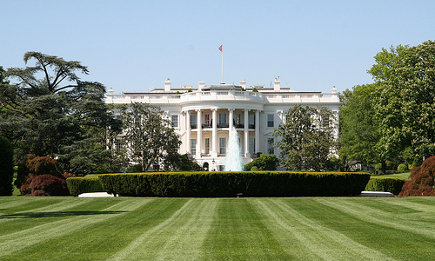Wetenschap inzet verkiezingen VS

Science Debate begon in 2008 als een grassroot beweging die alsdoel had wetenschap, milieu, gezondheid en technologie inzet temaken van de presidentsverkiezingen. Veel prominente Amerikanensteunden dit initiatief, zo was Obama’s minister van Energie StevenChu een van de eerste supporters van Science Debate.
Binnenkort de antwoorden van Obama en Romney. Maar lees deantwoorden van Obama in
1. Innovation and the Economy.Science and technology have been responsible for over half of thegrowth of the U.S. economy since WWII, when the federal governmentfirst prioritized peacetime science mobilization. But severalrecent reports question America’s continued leadership in thesevital areas. What policies will best ensure that America remains aworld leader in innovation?
2. Climate Change. The Earth’s climate ischanging and there is concern about the potentially adverse effectsof these changes on life on the planet. What is your position oncap-and-trade, carbon taxes, and other policies proposed to addressglobal climate change-and what steps can we take to improve ourability to tackle challenges like climate change that crossnational boundaries?
3. Research and the Future. Federally fundedresearch has helped to produce America’s major postwar economiesand to ensure our national security, but today the UK, Singapore,China, and Korea are making competitive investments in research.Given that the next Congress will face spending constraints, whatpriority would you give to investment in research in your upcomingbudgets?
4. Pandemics and Biosecurity. Recentexperiments show how Avian flu may become transmissible amongmammals. In an era of constant and rapid international travel, whatsteps should the United States take to protect our population fromemerging diseases, global pandemics and/or deliberate biologicalattacks?
5. Education. Increasingly, the globaleconomy is driven by science, technology, engineering and math, buta recent comparison of 15-year-olds in 65 countries found thataverage science scores among U.S. students ranked 23rd,while average U.S. math scores ranked 31st. In yourview, why have American students fallen behind over the last threedecades, and what role should the federal government play to betterprepare students of all ages for the science and technology-drivenglobal economy?
6. Energy. Many policymakers andscientists say energy security and sustainability are majorproblems facing the United States this century. What policies wouldyou support to meet the demand for energy while ensuring aneconomically and environmentally sustainable future?
7. Food. Thanks to science and technology,the United States has the world’s most productive and diverseagricultural sector, yet many Americans are increasingly concernedabout the health and safety of our food. The use of hormones,antibiotics and pesticides, as well as animal diseases and eventerrorism pose risks. What steps would you take to ensure thehealth, safety and productivity of America’s food supply?
8. Fresh Water. Less than one percent of theworld’s water is liquid fresh water, and scientific studies suggestthat a majority of U.S. and global fresh water is now at riskbecause of increasing consumption, evaporation and pollution. Whatsteps, if any, should the federal government take to secure clean,abundant fresh water for all Americans?
9. The Internet. The Internet plays acentral role in both our economy and our society. What role, ifany, should the federal government play in managing the Internet toensure its robust social, scientific, and economic role?
10. Ocean Health. Scientists estimate that 75percent of the world’s fisheries are in serious decline, habitatslike coral reefs are threatened, and large areas of ocean andcoastlines are polluted. What role should the federal governmentplay domestically and through foreign policy to protect theenvironmental health and economic vitality of the oceans?
11. Science in Public Policy. We live in an erawhen science and technology affect every aspect of life andsociety, and so must be included in well-informed public policydecisions. How will you ensure that policy and regulatory decisionsare fully informed by the best available scientific and technicalinformation, and that the public is able to evaluate the basis ofthese policy decisions?
12. Space. The United States is currentlyin a major discussion over our national goals in space. What shouldAmerica’s space exploration and utilization goals be in the 21stcentury and what steps should the government take to help achievethem?
13. Critical Natural Resources. Supplyshortages of natural resources affect economic growth, quality oflife, and national security; for example China currently produces97% of rare earth elements needed for advanced electronics. Whatsteps should the federal government take to ensure the quality andavailability of critical natural resources?
14. Vaccination and publichealth. Vaccination campaigns against preventablediseases such as measles, polio and whooping cough depend onwidespread participation to be effective, but in some communitiesvaccination rates have fallen off sharply. What actions would yousupport to enforce vaccinations in the interest of public health,and in what circumstances should exemptions be allowed?
Meest Gelezen
Vrouwen houden universiteit draaiende, maar krijgen daarvoor geen waardering
Wederom intimidatie van journalisten door universiteit, nu in Delft
‘Burgerschapsonderwijs moet ook verplicht worden in hbo en wo’
Raad van State: laat taaltoets nog niet gelden voor hbo-opleidingen
Hbo-docent wil wel rolmodel zijn, maar niet eigen moreel kompas opdringen



